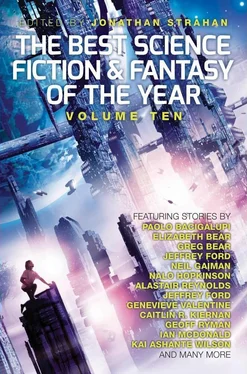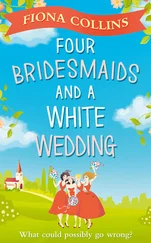Southsea’s vast shingle beach was a short walk away. The rip-tides were immense here, heaving the stones eastwards, and impressive wooden groynes split the beach into great high-sided boxes to conserve it.
In his donkey jacket and cracked DMs, Dan might have tumbled out of the old Russian film I’d been watching. (A woman slides from her bed, naked, and begins, unselfconsciously, to dress.) “We’re digging a villa,” he told me, as we slid and staggered over the shingle. Dan was the bright one, the one who’d gone away to study. “A bloody joke, it is.” He had a way of describing the niceties of archaeological excavation – which features to explore, which to record, which to dig away – that made it sound as if he was jobbing on a building site. And it is true that his experiences had weathered and roughened him.
I wondered if this modest but telling transformation was typical. We rarely saw our other brothers, many as they were. The three eldest held down jobs in the construction of the London Britannia airport; back then just ‘Boris Island’, and a series of towers connected by gantries, rising out of the unpromisingly named Shivering Sands. Robert had moved to Scarborough and worked for the coast guard. The rest had found work out of the country, in Jakarta and Kuala Lumpur and poor Liam in Dubai. The money they sent back paid for Dan’s education, Dad’s plan being to line up our family’s youngest for careers in government service. I imagined my brothers all sunburnished and toughened by their work. Me? Back then I was a very minor observations man, flying recycled plastic drones out of Portsmouth Airport on the Hampshire coast. This was a government job in name only. It was locally run; more of a vigilante effort, truth be told. This made me, at best, a very minor second string in Dad’s meticulously orchestrated family.
It did, though – after money sent home – earn me enough to rent a conversion flat in one of those wedding cake-white Georgian terraces that look out over Southsea’s esplanade. The inside was ordinary, all white emulsion and wheatmeal carpeting, until spring came, and sunlight came blazing through the bay window, turning the whole of my front room to candy and icing sugar.
“Beautiful.”
It was the last thing I expected Dan to say.
“It’s bloody beautiful.”
“It’s not bad.”
“You should see my shithole,” Dan said, with a brutal satisfaction.
At the time I thought he was just being pretentious. I realise now – and of course far too late – that brute nil-rhetoric was his way of expressing what was, in the millennial atmosphere of those post-feminine days, becoming inexpressible: their horror.
I do not think this word is too strong. Uncovering the graves of little girls, hundreds and hundreds, was a hazard of Dan’s occupation. Babies mostly; a few grown children though. The business was not so much hidden as ignored. That winter I’d gone to Newcastle for a film festival; the nunneries there had erected towers in the public parks for people to leave a child. Babies survived at least a couple of days, exposed to the rain and cold. Nobody paid any attention.
Dan’s job was to enter construction sites during the phase of demolition, and see what was to be gleaned of the nation’s past before the construction crews moved in, turfing it over with rebar and cement. Of course the past is invented, more than uncovered. You see what you are primed to see. No-one wants to find a boat, because boats are the very devil to conserve and take an age to dig, delaying everyone. Graves are a minor problem in comparison, there are so many of them. The whole of London Bridge rises above the level of the Thames on human bones.
Whenever his digs struck recent graves, Dan’s job was to obliterate them. Hence, his pose: corporation worker. Glorified refuse man. Hence his government career: since power accretes to those who know – in this case, quite literally – where the bodies are buried.
Why should it have been women, and women alone, that succumbed to the apian plague – this dying breed’s quite literal sting in the tail? A thousand conspiracy theories, even now, shield us from the obvious and unpalatable truth: that the world is vast, and monstrously infolded, and we cannot, will not, will not ever know.
And while the rest of us were taken up with our great social transformation, it fell to such men as Dan – gardeners, builders, miners, archaeologists – to deal with the sloughed-off stuff. The bones and skin.
Not secret; and at the same time, not spoken of: the way we turned misfortune into social practice, and practice, at last, into technology. The apian plague is gone long since, dead with the bees that carried it. But, growing used to this dispensation, we have made analogues for it, so girls stay rare. Resources shrinking as they do, there’s not a place on earth now does not harbour infanticides. In England in medieval times we waited till the sun was set then lay across our newborn girls to smother them. Then, too, food was short, and dowries dear.
Something banged my living room wall, hard. I turned to see the mirror I had hung, just a couple of days before, rocking on its wire. Another blow, and the mirror rocked and knocked against the wall.
“Hey.”
My whole flat trembled as blow after blow rained down on the wall. “Hey!”
Next door was normally so quiet, I had almost forgotten its existence. The feeling of splendid isolation I had enjoyed since moving in here fell away: I couldn’t figure out who it could be, hammering with such force. Were they moving furniture in there? Fixing cupboards?
The next blow was stronger still. A crack ran up the wall from floor to ceiling. I leapt up. “Stop it. Stop.” Another blow, and the crack widened. I stepped back and the backs of my knees touched the edge of the sofa and I sat down, nerveless, too disorientated to feel afraid. A second, diagonal crack opened up, met a hidden obstacle, and ran vertically up to the ceiling.
The room’s plaster coving, leaves and acorns and roses, snapped and crazed. A piece of stucco fell to the floor.
I didn’t understand what was happening. The wall was brick, I knew it was brick because I’d hung a mirror on it not two days before. But chunks of plasterboard were peeling back under repeated blows, revealing a wall made of balled-up sheets of newspaper. They flowed into the room on top of the plasterboard. Dan put his arms around me. I was afraid to look at him: to see him as helpless as I was. Anyway, I couldn’t tear my gaze from the wall.
Behind the newspaper was a wooden panel nailed over with batons. It was a door, or had been: there was no handle. The doorframe had split along its length and something was trying to force it open against the pile of plasterboard and batons already piled on the carpet. The room filled with pink-grey dust as the door swung in. The space beyond was the colour of old blood.
From out of the darkness, a grey figure emerged. It was no bigger than a child. It came through the wall, into my room. It was grey and covered in dust. Its face was a mask, strangely swollen: a bladder pulling away from the bone.
She spoke. She was very old. “What are you doing in my house?”
MY LANDLORD CAME round the same evening. By then Dan and I had gathered from his grandmother – communicating haphazardly through the fog of her dementia – that my living room and hers had once been a single, huge room. Her property. The house she grew up in. The property had been split in half years ago; long before my half had been subdivided to make flats.
The landlord said, “She must have remembered the door.”
“She certainly must have.”
He was embarrassed, and embarrassment made him aggressive. He seemed to think that because we were young, his mother’s demolition derby must have been partly our fault. “If she heard noises through the wall, it will have confused her.”
Читать дальше












